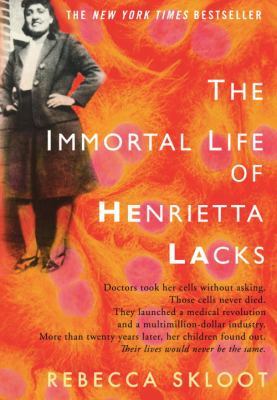 |
| source |
It tells the incredible true story of (you guessed it) Henrietta Lacks, a Black woman who lived in Maryland in the 1950s. She developed cervical cancer and was treated at Johns Hopkins Hospital in Baltimore. During a surgery to treat the cancer, a doctor took—without her knowledge (and therefore, of course, without her consent)—some of her cervical cells, both of the cancerous and the non-cancerous varieties.
The cancerous cells turned out to be just what that doctor had been looking for: human cells that would stay "alive" and reproduce...so they could be used in scientific research. (The very nature of cancerous cells is that they reproduce out of control...yet they were still living human cells. Both of these things together made the cells a perfect growth medium.)
I mention her race above because back then, Johns Hopkins performed experiments on Black people, sometimes (clearly) without even their knowledge...which the book discusses.
Anyway, that doctor began to distribute and later even to sell Ms. Lacks' cells; however, for many years, Ms. Lacks' family was completely unaware that this was happening, and they certainly were not receiving any compensation for it.
Ms. Lacks' cells are still in use today and have been involved in a huge number of medical and other scientific breakthroughs. Much of the modern medicine and technology that we rely on today we owe in part to Ms. Lacks' cells.
In the book Rebecca Skloot tells not only the story of what happened to Ms. Lacks and her family but also the story of her investigation, which is also fascinating.
HBO made a movie (by the same name) based on the book, starring Oprah Winfrey and Rose Byrne. You can stream it online using HBO Now. If you don't already have HBO, you can stream it for free by signing up for a free 30-day trial first.
So...to sum up my review: This is, as I've said, an incredible true story, well told; I highly recommend it for everyone and think it should be required reading for all medical students as well as all other scientists.